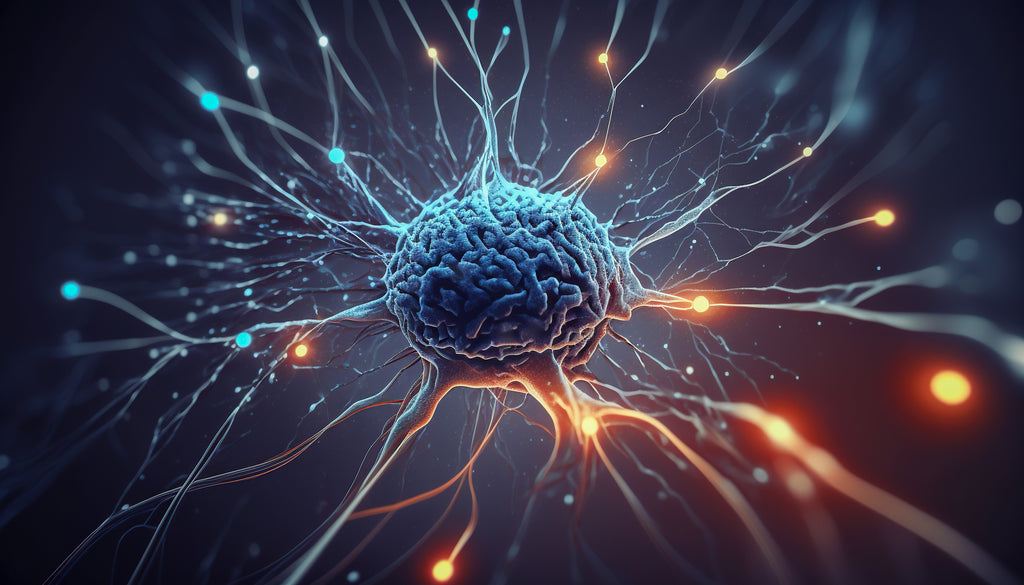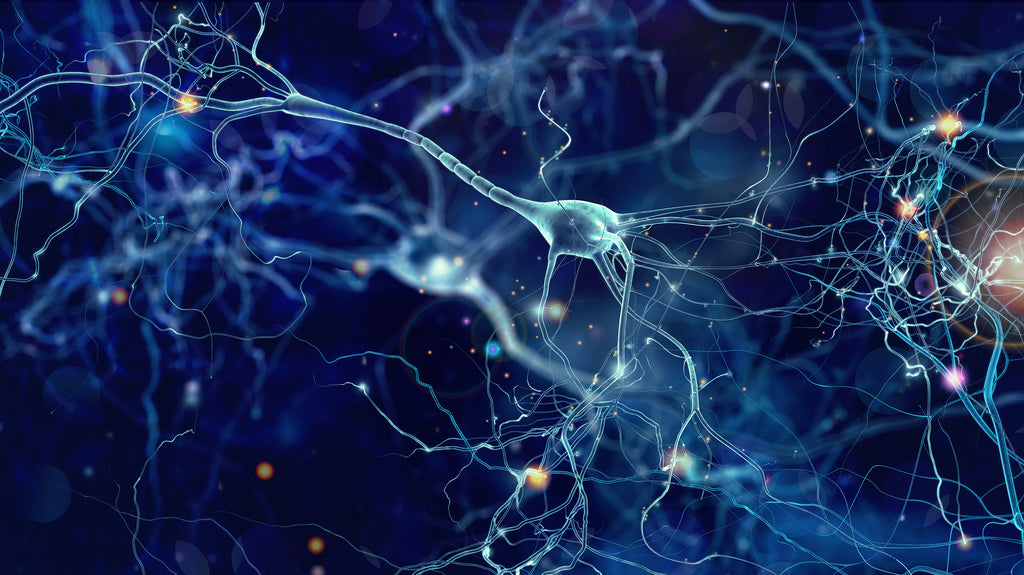Superfood for your brain – phosphatidylserine
Research has shown that phosphatidylserine supports optimal cognitive function. The American Psychology Association defines cognitive function as “the performance of mental processes including learning, memory, understanding, awareness, reasoning, judgment, intuition and language”.

In addition to enhancing cognitive function, phosphatidylserine also improves brain glucose metabolism and the production of important neurotransmitters (Glade, Kim & Casamenti) which might help with that feeling of “brain-drain” at 3pm in the afternoons when your blood sugar levels fall.
Neuroplasticity refers to the fact that our brains are not static, in fact, your brain is constantly changing itself and adapting. New neural pathways are constantly being created and strengthened in response to changes in our environment and the demands we place upon our brains. Phosphatidylserine can increase neuroplasticity, helping us to learn and remember more effectively and adapt more quickly (Kim, Huang & Spector, 2014).

In the 1990s researchers proved that phosphatidylserine supplementation lowers cortisol (Monteleone et. al. 1990) which means that it helps our body (and more specifically our brain) to cope with stress.

Phosphatidylserine is a brain superfood for all ages; from children with behavioural & learning difficulties to working professionals needing to remain sharp and cope with high pressure environments. Phospholipids decrease with age and supplementation with phosphatidylserine has been shown to result in statistically significant improvements in age-related cognitive impairment (Engel, et. al. 1992).
REFERENCES:
Carter, Jeremy MS, CSCS; Greenwood, Mike PhD, CSCS*D, RSCC*D, FNSCA. Phosphatidylserine for the Athlete. Strength and Conditioning Journal 37(1):p 61-68, February 2015. | DOI: 10.1519/SSC.0000000000000112
Casamenti, F., Scali, C., & Pepeu, G. (1991). Phosphatidylserine reverses the age-dependent decrease in cortical acetylcholine release: a microdialysis study. European Journal of Pharmacology, 194(1), 11–16. https://doi.org/10.1016/0014-2999(91)90117-9
Engel, R. R., Satzger, W., Günther, W., Kathmann, N., Bove, D., Gerke, S., Münch, U., & Hippius, H. (1992). Double-blind cross-over study of phosphatidylserine vs. placebo in patients with early dementia of the Alzheimer type. European Neuropsychopharmacology: The Journal of the European College of Neuropsychopharmacology, 2(2), 149–155. https://doi.org/10.1016/0924-977x(92)90025-4
Glade, M. J., & Smith, K. (2015). Phosphatidylserine and the human brain. Nutrition, 31(6), 781–786. https://doi.org/10.1016/j.nut.2014.10.014
Hirayama, S., Terasawa, K., Rabeler, R., Hirayama, T., Inoue, T., Tatsumi, Y., Purpura, M., & Jäger, R. (2014). The effect of phosphatidylserine administration on memory and symptoms of attention-deficit hyperactivity disorder: A randomised, double-blind, placebo-controlled clinical trial. Journal of Human Nutrition and Dietetics, 27(2), 284–291. https://doi.org/10.1111/jhn.12090
Jäger R, Purpura M, Kingsley M. Phospholipids, and sports performance. J Int Soc Sports Nutr 4, 2007
Kim, H. Y., Huang, B. X., & Spector, A. A. (2014). Phosphatidylserine in the brain: Metabolism and function. Progress in Lipid Research
Manor I, Magen A, Keidar D, Rosen S, Tasker H, Cohen T, Richter Y, Zaaroor-Regev D, Manor Y, Weizman A. The effect of phosphatidylserine containing Omega 3 fatty-acids on attention-deficit hyperactivity disorder symptoms in children: A double-blind placebo-controlled trial, followed by an open-label extension. Eur Psychiatry 27: 335–342, 2012
Monteleone, P., Beinat, L., Tanzillo, C., Maj, M., & Kemali, D. (1990). Effects of phosphatidylserine on the neuroendocrine response to physical stress in humans. Neuroendocrinology, 52(3), 243–248. https://doi.org/10.1159/000125593